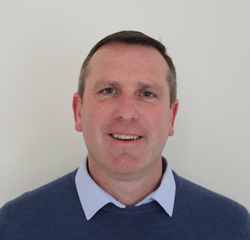
Mr Noel Black, Principal Physiologist, South Eastern Health and Social Care Trust and Deputy Chair of Clinical Standards for the British Society of Echocardiography (BSE) shares his thoughts on how echocardiography standards support the development of our workforce for Healthcare Science Week 2023.
Cardiac physiologists/clinical scientists are the primary workforce delivering echocardiography in the clinical setting across both NHS and private institutions in the UK and Ireland. Echocardiography remains a comparatively low cost modality within the NHS and is an invaluable, readily available, diagnostic test that can provide information that can change the treatment course, and in some cases, provide real-time critical information for patient diagnosis and treatment. The majority of the clinical uses of echocardiography are performed and reported by the clinical scientist workforce in NHS and private practice, and the overlap between the different utilities of echo is expanding. The addition of contrast to echocardiography, or the addition of strain to transthoracic echo are all examples of combinations of these utilities. The utilisation of echocardiography is vast and can be applied in a variety of ways and a wide range of situations.
The increasing demand and availability of this essential diagnostic tool therefore requires a level of governance that reflects both the skill of the clinical scientist and the continuing professional development of this vital workforce. Now more so than ever, the skillset of the clinical scientist influences the reproducibility, and reliability, of the echocardiography modality. In turn the reliability, and reproducibility, of the modality impacts upon patient diagnosis, treatment, and overall patient outcome.
The healthcare science workforce is rapidly developing with advancement of healthcare scientist led services. This involves healthcare scientists taking on more responsibility for services and patients pathway management, improving patient experience, whilst relieving pressure on consultants, thereby helping to reduce waiting times. The healthcare science workforce within the speciality of echocardiography are central to service development and undertake the vast majority of the coordination and delivery of training in echocardiography across the UK and Ireland.
Healthcare scientists who deliver echocardiography services in the UK and Ireland are a highly trained professional workforce who require the time and energy to care. The BSE continues to develop standards, and promote workforce planning, supporting the healthcare scientist workforce to provide the high level of care that all our patients deserve.
The BSE clinical standards committee aims to provide guidance and advice to the echocardiography community, especially healthcare scientist leads and managers, by describing the care that patients should be offered by health professionals and health services. The work is closely aligned with the formal departmental accreditation process and extends to all those who perform echocardiography regardless of their background discipline. A major focus of the committee’s recent work has been the rollout of the Echo Quality Framework (EQF); a toolkit which departments can use to obtain and analyse bespoke feedback with the aim of enhancing overall patient experience.
A new interactive Echo Quality Accreditation (EQA) online application portal is currently under development and will soon undergo testing before release to echo departments across the UK and Ireland. This very user friendly application portal will enhance the assessment process. Moreover, the web portal is designed to improve and streamline the accreditation and application process for echo teams.
The BSE Departmental Accreditation and EQA initiatives continue to offer departments a quality assurance benchmark process to deliver echo services that provide safe, effective, and excellent care for healthcare scientists and their patients.